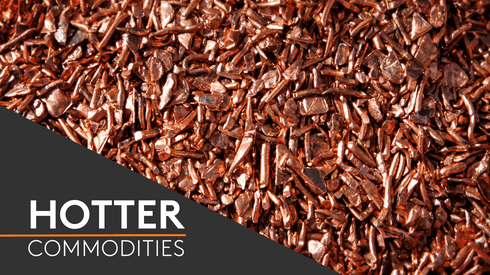In hindsight, the BHP and Anglo American deal had seemed somewhat ill-fated from the start.
BHP’s initial $39 billion approach to Anglo American was leaked before the two parties were able to begin ironing out the kinks that have since inevitably arisen.
It left little time for BHP to have conversations with major investors, government ministers and regulators, which would have helped reveal and potentially smooth over the glaringly obvious sticking points: the value of the deal, which was too low, and the structure, which was deemed too complex.
Get notified when Andrea Hotter publishes new articles and interviews on the natural resources sector. Receive the latest stories straight to your inbox.
BHP seemed to understand it would need to improve on price – a lowball first bid is in every corporate’s M&A playbook, after all – and sweetened its proposal, twice. At just over $49 billion, the final proposed price was still not enough, but it was certainly closer to the kind of level that Anglo American’s board and its shareholders might have wanted.
Yet where the proposal really fell apart was over BHP’s plan to demerge its South African platinum group metals and iron ore businesses. This would have taken over 18 months to complete, given the regulatory, union and communities support that would have been required, and not necessarily assured.
It would have also locked up shareholders with exposure to BHP but no shares in their pockets.
This was consistently repeated by Anglo American each time it publicly responded to BHP’s improvements on price.
“The requirement to pursue two contemporaneous demergers of publicly listed companies alongside a takeover and the inter-conditional nature of the three transactions is unprecedented,” Anglo American said.
Anglo American nonetheless engaged with BHP throughout the process, including extending the deadline for the “put up or shut up” by one week.
Some market participants argue that BHP’s approach was not actually designed to succeed in acquiring Anglo American. Instead, they say, the goal was to show BHP shareholders that the company was in danger of missing the boat on copper and highlight the need for the miner to move into more difficult geographical regions to secure it.
That kind of M&A strategy seems like a highly risky gamble that does not fit the traditional BHP mold.
Conspiracy theories aside, the whole saga has certainly awoken the broader investment community up to the attractiveness of copper, whether intentionally or not, evidenced by a frenzy of speculative money entering the copper market in the recent month and the toppy price forecasts that have accompanied them.
BHP now has to wait six months before being able to make another offer for Anglo American, by which point the latter’s wholesale overhaul of the company will be well underway. BHP could come back sooner, however, if a third party makes a firm takeover offer for Anglo American in the interim.
The key for Anglo American now will be to execute on its own radical break-up plan, and quickly. Its recently announced willingness to focus on copper, iron ore and crop nutrients, and do the dirty work for a suitor of divesting, demerging, or shuttering its other businesses, will make it an even more appealing target in the future.
In Hotter Commodities, special correspondent Andrea Hotter covers some of the biggest stories impacting the natural resources sector. Sign up today to receive Andrea’s content as it is published.






